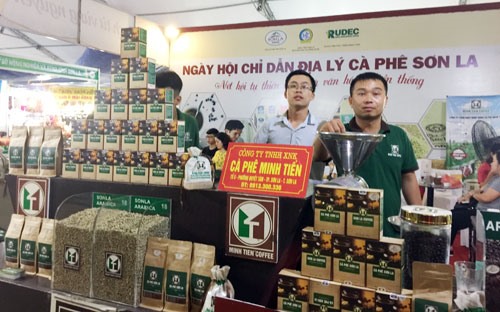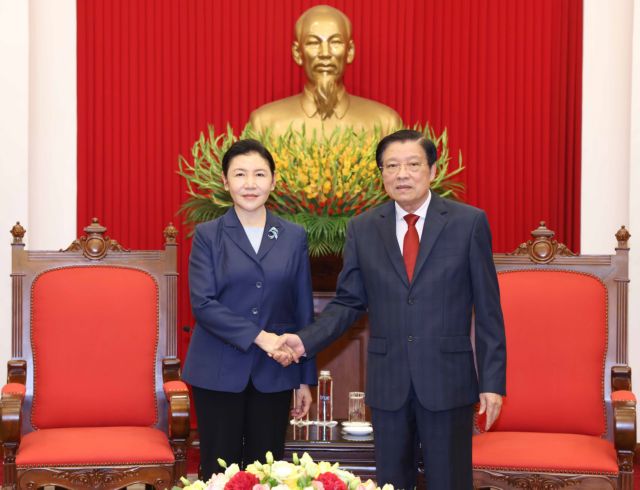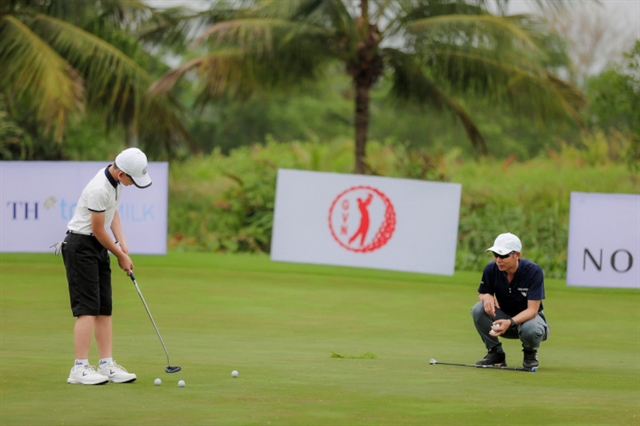 Economy
Economy

The north-western
 |
| People visit a booth introducing Sơn La coffee at the festival in Hà Nội on Thursday. — Photo hanoimoi.vn |
HÀ NỘI — The north-western
Speaking at the ceremony, La Phạm Quang An, director of the provincial Department of Science and Technology, said the establishment of GI for Sơn La coffee could totally complete the legal framework, creating a firm foundation for the product to gain a foothold in the domestic market and increase exports.
In addition, it would also improve coffee’s value as well as developing the local coffee sector.
“Building GI for Sơn La coffee has been also a suitable step in the project for the coffee industry’s sustainable growth of the province’s industry by 2020,” he added.
He said in the late 19th and early 20th centuries, French colonialists began planting coffee in Sơn La and other
Over the past 70 years of development, Sơn La coffee has become a specialty of Sơn La and gradually established its position on the market. It gained a good reputation due to the terrain, land and climate of the geographic area suitable for Arabica coffee varieties, especially the local cultivation methods that also constitute a key aspect of area culture.
Up to 80 per cent of coffee beans made in Sơn La are exported to the US, Russia and Japan and some other countries, he noted, adding that the reputation of Sơn La’s Arabica coffee has improved, asserting the province as a major Arabica producing hub of Việt Nam.
The province plans to create a concentrated coffee plantation area with focus on applying science and technology in production and processing, thus improving productivity and quality.
In addition, the province has also encouraged businesses and co-operatives to associate and develop coffee sustainably and with the goal of increasing added-value through processing.
The GI for Sơn La coffee products was granted by the National Office of Intellectual Property (NOIP) under the Ministry of Science and Technology for three kinds of coffee including coffee beans, roasted coffee beans and coffee powder.
According to the province, Sơn La is home to more than 2,000ha of Arabica coffee trees with output of 30,000 tonnes per year. Most of the coffee growing area of the province is concentrated in Sơn La City, Mai Sơn, Sốp Cộp and Thuận Châu districts.
60 products get GI
NOIP on the same day introduced other products which were given GI protection and its publication “Geographical indication – Vietnamese natural and cultural heritage.”
The publication aimed to bring readers a picture of quality, reputation, traditional values and origin of products designated with GI.
Phan Ngân Sơn, NOIP’s deputy director, announced that as of June 2018, the country has 60 GIs in 39 provinces and cities granting protection, gradually affirming specialties’ position.
Products with GI protection have brought high added-value to the economy.
“Việt
NOIP has launched numerous programmes for localities, businesses and associations in building and managing GI.
In the upcoming time, they will improve people’s awareness of GI products’ recognition.
Worldwide, there are around 10,000 GIs which have been given protection, with transaction value of $50 billion a year. — VNS









